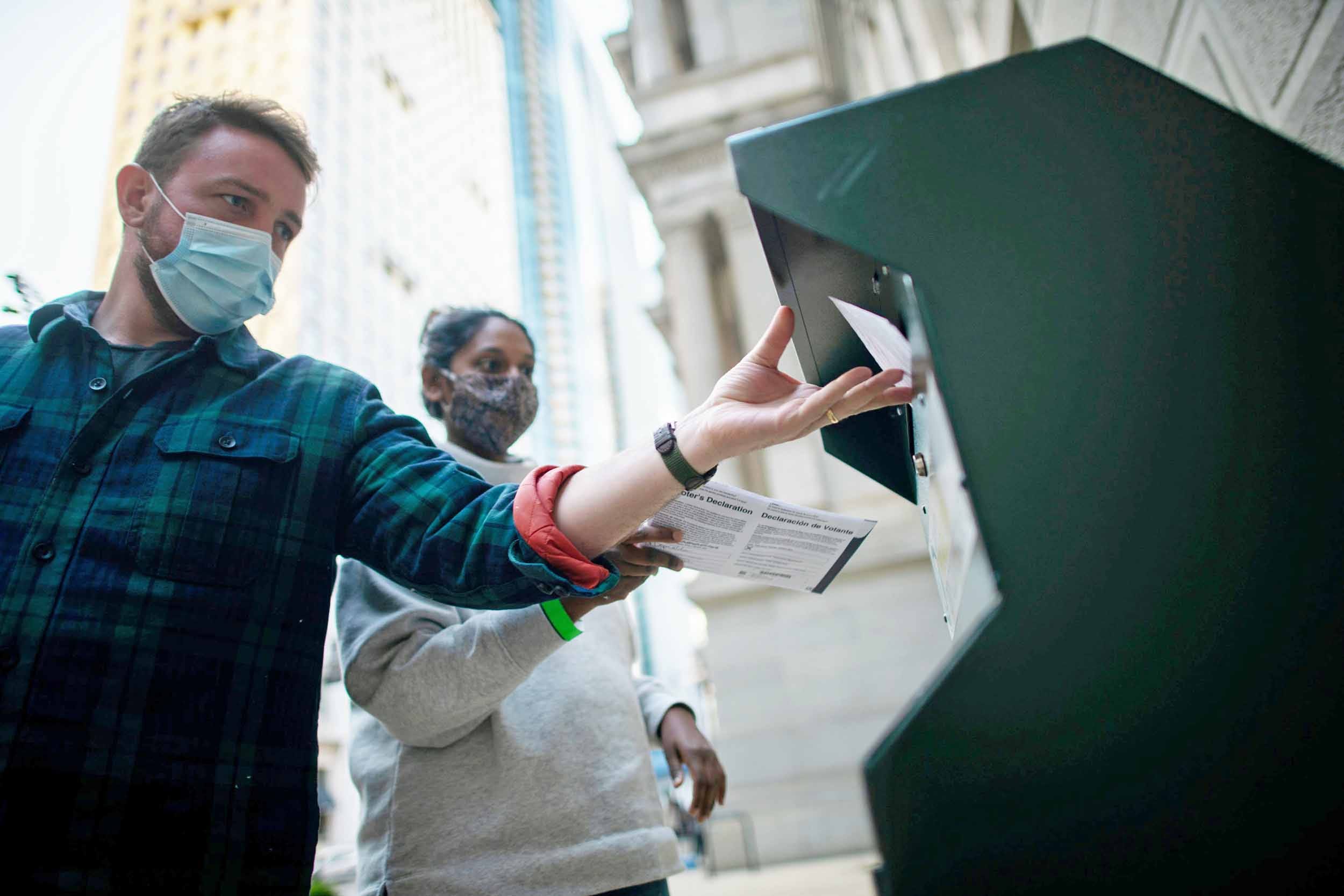
Mark Makela/Getty Images
- "Prison gerrymandering" refers to counting inmates as local residents.
- The practice boosts the political power of largely white, rural districts.
- Just under 37,000 people are incarcerated in Pennsylvania state prisons.
- See more stories on Insider's business page.
In a boost for Democrats' prospects in 2022, Pennsylvania's redistricting commission voted Tuesday to stop considering incarcerated people as "residents" of state prisons, a practice that had boosted the political power of largely white, rural counties.
Under the new policy, which goes into effect before the next election, residency will be determined by the incarcerated person's last known home address.
Pennsylvania's Legislative Reapportionment Commission, tasked with drawing new political maps based on the 2020 Census, approved the change in a 3-2 vote, Spotlight PA reported.
The panel includes two Democrats and two Republicans, with former University of Pittsburgh Chancellor Mark Nordenberg appointed by the state Supreme Court to serve as a nonpartisan swing vote. Both Republicans voted against the change.
"When a system holds and counts a person in one place but forces him or her to vote in another, it does create a basic issue of fairness," Nordenberg said Tuesday, per the Associated Press.
As of July 31, just under 37,000 people are incarcerated in Pennsylvania state prisons. More than 9,000 previously called Philadelphia home, AP noted, while more than 2,500 hailed from the Pittsburgh area, both of which are Democratic strongholds.
The commission's vote does not impact the counting of the more than 30,000 federal inmates in Pennsylvania, who will still be considered residents of the counties where those federal facilities are located.
Aleks Kajstura, legal director at the nonprofit Prison Policy Initiative, said Tuesday's decision was a positive step. The move "adds Pennsylvania to the growing list of states that recognize prison gerrymandering is a practice that distorts our democracy and creates unequal representation," he told Insider.
But he said the exclusion of other inmates was "unfortunate," illustrating the need for national reform "to end prison gerrymandering completely and uniformly through the country."
Critics of "prison gerrymandering" have argued that it's unfair to apportion political power, once a decade, by counting incarcerated people as living in counties where on average they will involuntarily reside for 3 to 4 years.
In 2009, a PPI analysis found eight of Pennsylvania's state house districts, most in the more conservative center of the state, only met federal population requirements - the minimum number of people required to form a district - because they included the local state prison population.
Although Democrats control the governorship and other statewide offices, Republicans have a 25-seat majority in the state house and a seven-seat margin in the state senate. Pennsylvania's federal congressional delegation is evenly split between the parties.
Have a news tip? Email this reporter: [email protected]

